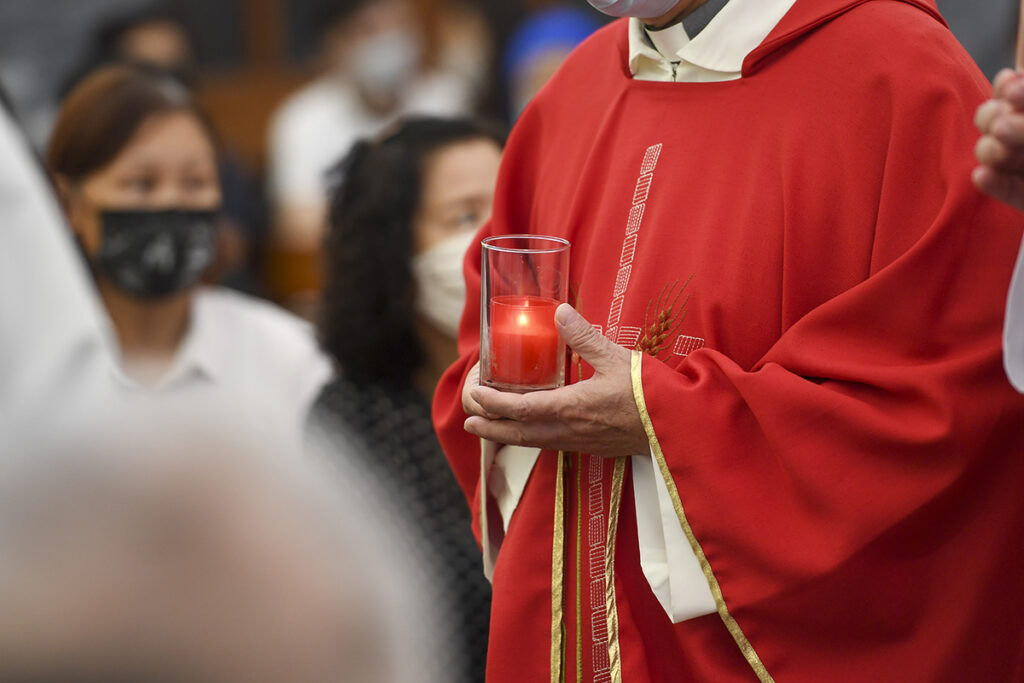Enrico Finotti
In the past, priests showed sacred respect for liturgical norms and the fear of not having observed them in a precise way shone in them. This example of theirs also aroused the same sentiments in us faithful and we were in church in silence and with devotion. Today none of this exists anymore. Everything is fine and it’s opposite and if you were to make observations you are also reproached
A sacristan
This situation is the symptom of the total fall of liturgical law, which does not spare buildings and places of worship; the sacred ministers in their dress, language and behavior; the rites with their laws, rhythms and symbols; etc. Everything is abandoned to an unbridled spontaneity, which is also considered liberating and authentic. In reality, the liturgical sacrum is fatally replaced by the more narrow profane custom, interwoven with secularization and clichés, typical of the worldly and earthly mentality. The collapse of the supernatural is dramatic and the breath of the eternal is extinguished. The exasperated functionalism of a sociological practice overwhelms every mystical perspective and the salus animarum gives way to the ‘humanitarian promotion’ of a world without God and closed in the material horizon.
How to get out of this situation? With a courageous and precise observance of liturgical law. When in a parched field the barren land no longer produces anything but brushwood, copious irrigation is enough for it to come back to life and the vegetation to become luxuriant. Thus, if on the sterile terrain of a profaned and secularized liturgy one resumes with determination to observe the liturgical law in all its parts, the celebration is immediately revived, is clothed in sacredness and transmits divine grace with admirable effectiveness. Liturgical law, in fact, is the channel of supernatural Grace, which is poured out abundantly through the mediation of the rites and precepts established by the Lord and his Church.
Then when the sacred places are enveloped in silence, the sacred ministers dressed in their noble liturgical garments, the rites performed with inner and outer gravity, the prayers elevated with solemn majesty, the songs and music inspired by the truth and holiness of dogma; when everything will be made docile to the law established by God and in conformity with the tradition received from the Fathers as a substantial part of the depositum fidei; then the Christian people will be respected in their rights as a priestly people and will be led by faithful shepherds to go up from visible things to the contemplation of the eternal ones. (From La spada e la Parola. Il liturgista risponde, 2018© Chorabooks. Translated by Aurelio Porfiri. Used with permission of the publisher. All rights reserved) (Photo by Ivan Leong)


 Follow
Follow


